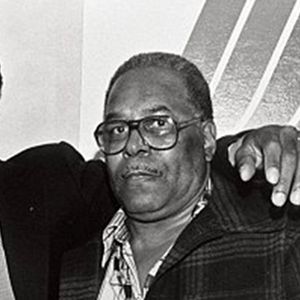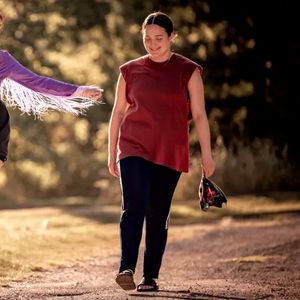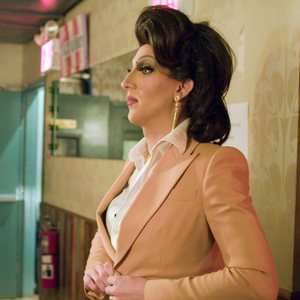CONTACTStaffCAREER OPPORTUNITIESADVERTISE WITH USPRIVACY POLICYPRIVACY PREFERENCESTERMS OF USELEGAL NOTICE
© 2024 Pride Publishing Inc.
All Rights reserved
All Rights reserved
By continuing to use our site, you agree to our Private Policy and Terms of Use.
The Pennsylvania supreme court will decide whether a man whose ex-wife is living with another woman can stop paying alimony to her. The justices heard arguments Wednesday in the case of Anthony and Robin Kripp, who divorced in 1998. Anthony Kripp has argued that he is no longer required to pay his ex-wife alimony because they agreed that the payments would stop after two years if she were to "cohabitate." "These two people knew what 'cohabitate' meant to them...they knew when they were drafting the [divorce] agreement that it would terminate if she was living with anyone," said Anthony Kripp's attorney, Carolyn Mirabile. Chief Justice Ralph J. Cappy questioned whether the definition would apply if the woman were living with her mother; Mirabile said that it would. "So his real concern was not her cohabitating with this certain female?" Cappy asked. "Absolutely not," Mirabile said. Anthony and Robin Kripp married in 1982, had three children, and separated in 1996. Anthony Kripp filed for divorce, and Robin moved to Kentucky and began living with another woman, according to court documents. Under a property settlement agreement negotiated by the couple, Anthony's $1,000-per-month alimony payments would end after two years if his ex-wife were to "cohabitate." After two years he stopped payment, saying his obligation had ended because she was living with another person. She sued, seeking to have him held in contempt for stopping the payments. The Chester County court of common pleas denied her petition in October 2000, accepting Anthony Kripp's testimony about what the pair meant when they used the word "cohabitate." Robin Kripp was not present at that hearing. The case was appealed to the state superior court, which disagreed with the lower court ruling, saying that Pennsylvania case law has consistently regarded cohabitation as involving two members of the opposite sex living together as husband and wife. In its September 2001 ruling, the superior court also said that the county court erred by accepting evidence from Anthony Kripp about what both parties allegedly intended by using the term. Robin Kripp also said her ex-husband failed to prove a sexual relationship with another person. The judges agreed--but said they did not have to consider the issue because of their ruling that same-sex partners could not be in "cohabitation." "They didn't say whether it meant cohabiting as husband and wife, as girlfriend and girlfriend?" Justice Ronald D. Castille asked. "In the 1900s it meant one thing. In the 2000s it means something different." Robin Kripp's attorney, Michael J. Reed, said the case has little to do with sexual relationships and much to do with contractual agreements. Anthony Kripp "did not provide a definition," Reed said. "He's the source of the ambiguity."
Want more breaking equality news & trending entertainment stories?
Check out our NEW 24/7 streaming service: the Advocate Channel!
Download the Advocate Channel App for your mobile phone and your favorite streaming device!
From our Sponsors
Most Popular
Here Are Our 2024 Election Predictions. Will They Come True?
November 07 2023 1:46 PM
17 Celebs Who Are Out & Proud of Their Trans & Nonbinary Kids
November 30 2023 10:41 AM
Here Are the 15 Most LGBTQ-Friendly Cities in the U.S.
November 01 2023 5:09 PM
Which State Is the Queerest? These Are the States With the Most LGBTQ+ People
December 11 2023 10:00 AM
These 27 Senate Hearing Room Gay Sex Jokes Are Truly Exquisite
December 17 2023 3:33 PM
30 Steamy Photos of Folsom Street Fair 2023 Debauchery
October 15 2023 11:06 PM
10 Cheeky and Homoerotic Photos From Bob Mizer's Nude Films
November 18 2023 10:05 PM
42 Flaming Hot Photos From 2024's Australian Firefighters Calendar
November 10 2023 6:08 PM
These Are the 5 States With the Smallest Percentage of LGBTQ+ People
December 13 2023 9:15 AM
Here are the 15 gayest travel destinations in the world: report
March 26 2024 9:23 AM
Watch Now: Advocate Channel
Trending Stories & News
For more news and videos on advocatechannel.com, click here.
Trending Stories & News
For more news and videos on advocatechannel.com, click here.
Latest Stories
'Florida has a First Amendment problem' — judge rules trans teacher can use 'Ms.'
April 10 2024 6:33 PM
Here's why soccer fans are booing USWNT player Korbin Albert
April 10 2024 6:26 PM
Trans and nonbinary migrants file complaint over treatment at ICE detention facility
April 10 2024 6:00 PM
X likely profited from promoted post calling for LGBTQ+ death penalty
April 10 2024 3:11 PM
Giselle Byrd is taking center stage — and helping others do the same
April 10 2024 2:15 PM
How Beyoncé's Cowboy Carter advances equality
April 10 2024 1:39 PM
The North Face faces conservative boycott for sponsoring a queer summer camp (exclusive)
April 10 2024 8:26 AM


















































































